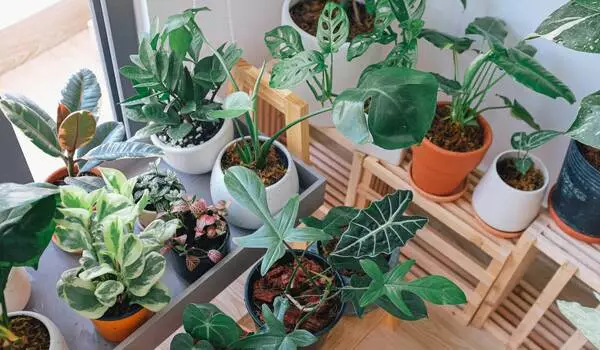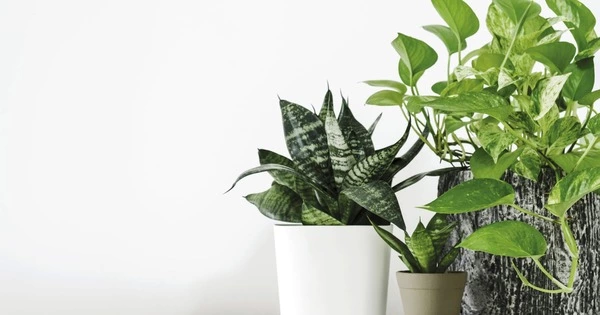While plants do play an important role in improving air quality by removing pollutants such as volatile organic compounds (VOCs), it is important to note that the direct impact of plants on cancer-causing toxins in the air is not well-established.
A groundbreaking study has revealed that plants can efficiently remove toxic petrol fumes from indoor air, including cancer-causing compounds like benzene. The research was led by Associate Professor Fraser Torpy of the University of Technology Sydney (UTS), in collaboration with Ambius, a leading Australian plantscaping solutions company.
The researchers discovered that the Ambius small green wall, which contained a variety of indoor plants, was extremely effective at removing harmful, cancer-causing pollutants, removing 97% of the most toxic compounds from the surrounding air in just eight hours.
According to the World Health Organisation, poor indoor air quality is responsible for 6.7 million premature deaths worldwide. Because most people spend 90% of their time indoors, whether at home, school, or work, developing new strategies to improve air quality is critical.
We know that indoor air quality is frequently significantly worse than outdoor air quality, which has an impact on both mental and physical health. However, the good news is that this study has shown that even something as simple as having plants indoors can make a significant difference.
Mr Hodgson
According to Ambius General Manager Johan Hodgson, the study provided new evidence into the critical role that indoor plants and green walls play in cleaning the air we breathe quickly and sustainably.
“We know that indoor air quality is frequently significantly worse than outdoor air quality, which has an impact on both mental and physical health. However, the good news is that this study has shown that even something as simple as having plants indoors can make a significant difference,” Mr Hodgson said.
Previous research on indoor plants has shown that they can remove a wide range of indoor air contaminants, but this is the first study to look into the ability of plants to clean up petrol vapours, which are one of the most common sources of toxic compounds in buildings around the world.

Offices and residential apartment buildings are frequently linked directly to parking garages via doors or elevator shafts, making it difficult to prevent harmful gasoline-related compounds from seeping into work and residential areas. Many structures are also exposed to petrol fumes emitted by nearby roads and highways.
Breathing in petrol fumes can cause lung irritation, headaches and nausea, and long-term exposure has been linked to an increased risk of cancer, asthma and other chronic diseases, all of which contribute to a lower life expectancy. When it came to removing petrol pollutants from the air, Associate Professor Torpy said the study results, which were based on measurements from a sealed chamber, far exceeded their expectations.
“This is the first time that plants have been tested for their ability to remove gasoline-related compounds, and the results are incredible. Plants not only remove the majority of pollutants from the air in a matter of hours, but they also remove the most harmful gasoline-related pollutants from the air the most efficiently; for example, the known carcinogen benzene is digested at a faster rate than less harmful substances, such as alcohols.”
“We also discovered that the higher the concentration of toxins in the air, the faster and more effective the plants became at removing the toxins, demonstrating that plants adapt to the conditions in which they grow,” Associate Professor Torpy explained.
Mr. Hodgson stated that the findings validated the feedback he received after installing plants in hundreds of office buildings across the country.
“At Ambius, we see time and time again how plants improve health, wellbeing, productivity, and office attendance for the thousands of businesses with which we work. This new study demonstrates that plants should not be considered a “nice to have,” but rather an essential component of any workplace wellness plan. The bottom line is that introducing plants is the best, most cost effective, and most sustainable way to combat harmful indoor air contaminants in your workplace and home,” Mr Hodgson said.
















